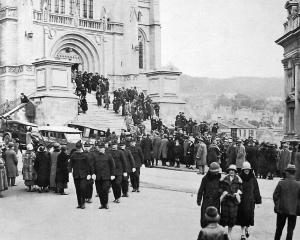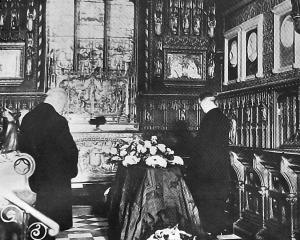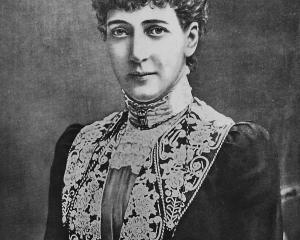Mr H. M. Ewing, chairman of the Sanatorium Committee of the Dunedin District Hospital and Charitable Aid Board, visited the institution of Saturday and found everything working with the greatest of smoothness. The patients appear to be happy and well contented with their surroundings.
The situation is undoubtedly an ideal one, and everything possible is done by the Sister-in-charge (Miss Brown) and her staff of six nurses to make the sanatorium fulfill its desired purpose.
Excellent order is observed, and the place has more the appearance of a well regulated camp or holiday resort than a hospital for the treatment of a dire disease.
Efforts are being made to accumulate a library, and donations of books would be very acceptable; whilst a distinct further addition to the general comfort and pleasure of all would be a piano for the social hall.
Hopes are entertained that this may in due time be forthcoming from persons well and charitably disposed. The present number of patients is 16 men and 10 women, and there are beds now available for about six more. The completion of the two new shelters will provide for a further eight women.
A three-rink bowling green and a croquet lawn have been laid down and give promise of nice smooth swards of grass ready for playing on this summer. On the utilitarian side the patients are being encouraged to learn carving, and basket and hammock-making. The shelters and houses are illuminated with electric light generated at the sanatorium's own power station. The farm portion is looking well, and a big supply of vegetables will soon be available.
It should be mentioned, perhaps, that the sanatorium serves the South Canterbury, North Otago, Otago, and Central Otago hospital districts.
• The Dunedin students of no-licence visited Alexandra on Thursday night, and were met by a good number of residents in the local hall. Mr Maslin, Mayor of Alexandra, presided. Mr A Hamilton gave a well-reasoned address of about 20 minutes' duration, pointing out how this question had become one of national significance.
He asked his hearers to realise that drink was the cause of much poverty. Shearing-sheds, sawmills, mining towns, the city slums testified to the adverse effects of drink. Moral reform and temperance reform had been tried, but both had failed and there remained only legislative reform.
The question therefore to be settled was "License or Prohibition, which is in the best interests of the nation?" It was not a forced reform. The people themselves were to settle this question.
Mr Mazengarb spoke for 45 minutes. He said the school, the church, industrial organisation, had all done their work, and done it well, but right in the path of further progress, and an insuperable barrier, stood the liquor traffic. This trade was of such a character that children and Maori women were preeluded from going into the hotel bars and being served. In what other trade were such restrictions made?
He concluded with an impassioned peroration, in which he bade the "moderate" remember the "other man", and vote "not to hurt". Mr Cornish also spoke, his address, from beginning to end, being characterised by logical argument and lucidity of expression. At the conclusion some questions were asked and answered.
- ODT, 25.11.1911.











